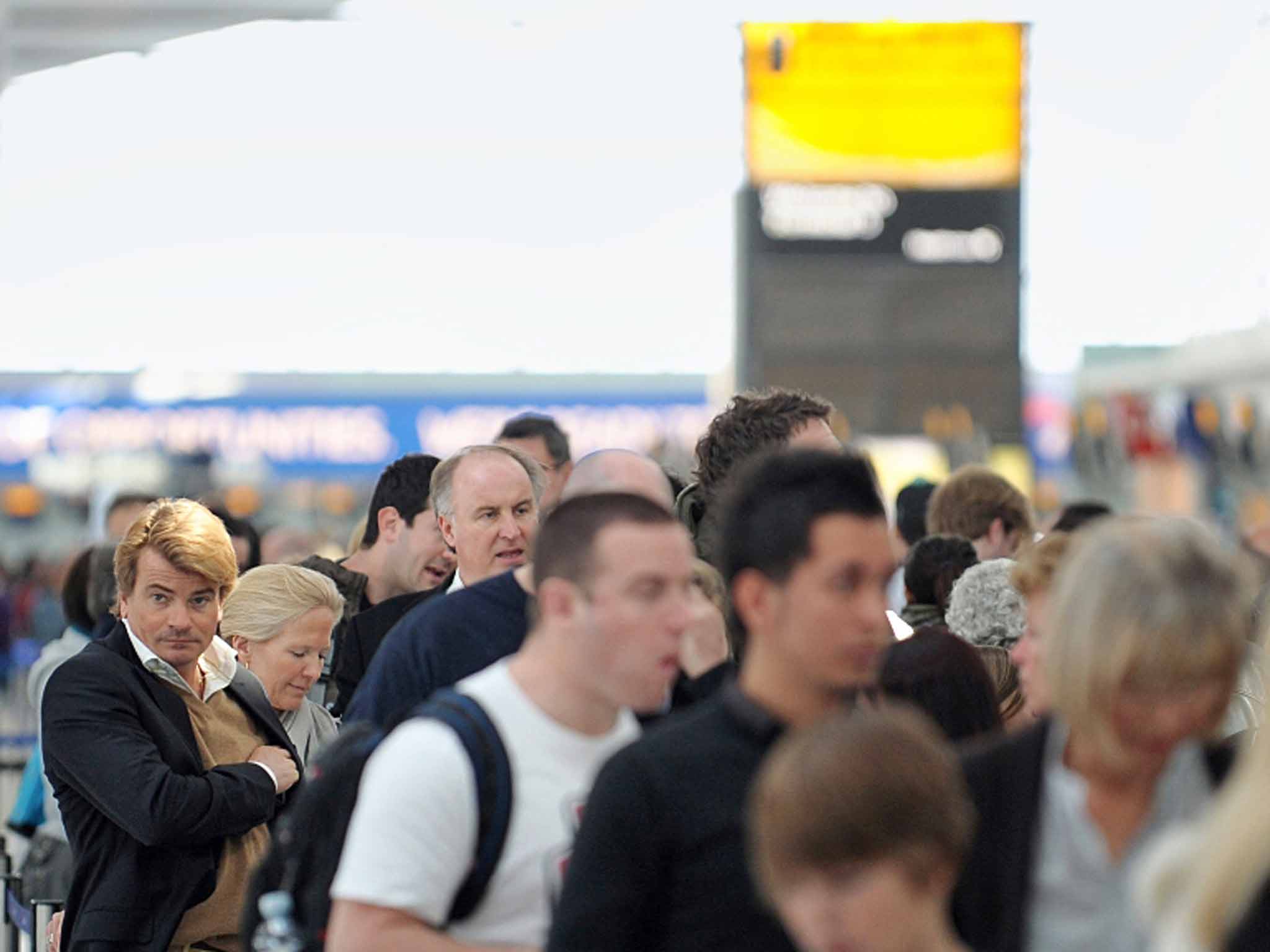Making millions selling seats that don't exist: What happens when everyone turns up?
The man who pays his way

Am I the only person, apart possibly from members of the airline accountancy profession, who regards overbooking as a marvellous concept?
You may have seen the story this week about the widespread practice of selling airline seats that don't exist (if you didn't, that gap in your life can be joyfully filled at bit.ly/OverBook).
As you know, airlines reside in a parallel universe. Many are not content with selling 100 per cent of the seats on a particular flight. To boost profits, they offer an extra five or 10 per cent, effectively selling seats that don't exist while hoping to predict the number of "no-shows".
When they guess right, it's a win-win-win. Planes fly fuller, which is good for the environment; airlines earn more, keeping a lid on fares; and passengers with an urgent need to travel, desperate for a seat at any price on a supposedly sold-out flight, can get where they need to be.
What happens, though, when everyone turns up, expecting to be able to board the confirmed flight that they bought several months earlier? When airlines play by the rules, overbooking confers an additional win for people like me who are happy to earn some cash and enjoy the hospitality of the airline in return for agreeing to take a later flight. They only have to ask.
The Americans are way ahead in offering inducements to volunteers. I cheerfully agreed to be seatless in Seattle while someone else flew in my place – presumably because they had a proper job that required their attendance. The airline, United, treated me to dinner before an overnight flight via New York to my final destination, Pittsburgh, and handed me a $200 (£133) voucher for a future trip. ("Next time hold out for $300," a fellow passenger, well versed in aviation strategy, advised when I told him about the deal.)
The rules and the reality
In Europe, offloading passengers against their will because of overbooking shouldn't happen. The EC261 rules say: "When an operating air carrier reasonably expects to deny boarding on a flight, it shall first call for volunteers to surrender their reservations in exchange for benefits."
Just about everyone on a plane has his or her price, i.e. the amount of cash (or free tickets) that will persuade them to take a later flight – perhaps as little as £50 or as much as £500.
Regrettably, the rules don't say how hard the airline must try. If ground staff don't keep upping the ante until sufficient volunteers have been recruited, they are allowed to select victims at random. But the airline must then hand over compensation, on the spot, to the people whose travel plans it decides to wreck.
People adversely affected by an airline's quest for profit are entitled to the equivalent of €250 (for short flights), €400 (for most European trips) or €600 (for long-hauls). The rules state: "If boarding is denied to passengers against their will, the operating air carrier shall immediately compensate them." British Airways says it does just that: handing offloaded passengers a pre-paid card, which the passenger can take to the nearest ATM to withdraw hard cash.
The airline must also arrange to get passengers to their destination "at the earliest opportunity".
You may be interested in how easyJet interpreted those rules when it chose to offload the children of Andrew Whelan, a Warwick businessman, from their flight to Barcelona. Mr Whelan worked out that the quickest way to get his boys to the Catalan capital was a departure four hours later from Heathrow. But easyJet refused to pay for seats on the flight, operated by arch-rival British Airways.
An easyJet spokesman told me: "We do offer comparable travel arrangements for passengers and will utilise the services of other airlines/transport modes and providers where and when necessary." An easyJet flight the next evening from Bristol was considered a "reasonable alternative".
The family's compensation could take a month. The airline told him: "The financial team have to approve it before it can be sent out to you."
This week, easyJet revealed it expects to make profits averaging £20 per second for the year.
No-shows must go on?
Overbooking would be a lot less messy if airlines knew more about who was planning to turn up. Many "no-shows" are people whose plans have changed but who have no incentive – or even opportunity – to let the airline know. Both easyJet and Ryanair allow changes of flight or passenger name. But neither lets a traveller say, "I won't be taking my place on your plane – do sell my seat".
I happen to have a flight booked from Copenhagen to Luton on Wednesday. I may or may not use it, depending on how my trip works out. If I do find a different way home, I shall simply no-show for the flight from the Baltic to Bedfordshire.
Much better to adopt the WestJet approach. This Canadian low-cost airline tells passengers: "Life sometimes gets in the way of plans. We understand, and we try to be as accommodating as possible when plans change." You can cancel a flight up to two hours before departure, and any residual value is kept in a "Travel Bank" for future use.
WestJet also points out: "Unlike most airlines, our flights are not intentionally oversold." But I reckon they should try it.
Join our commenting forum
Join thought-provoking conversations, follow other Independent readers and see their replies
Comments
Bookmark popover
Removed from bookmarks